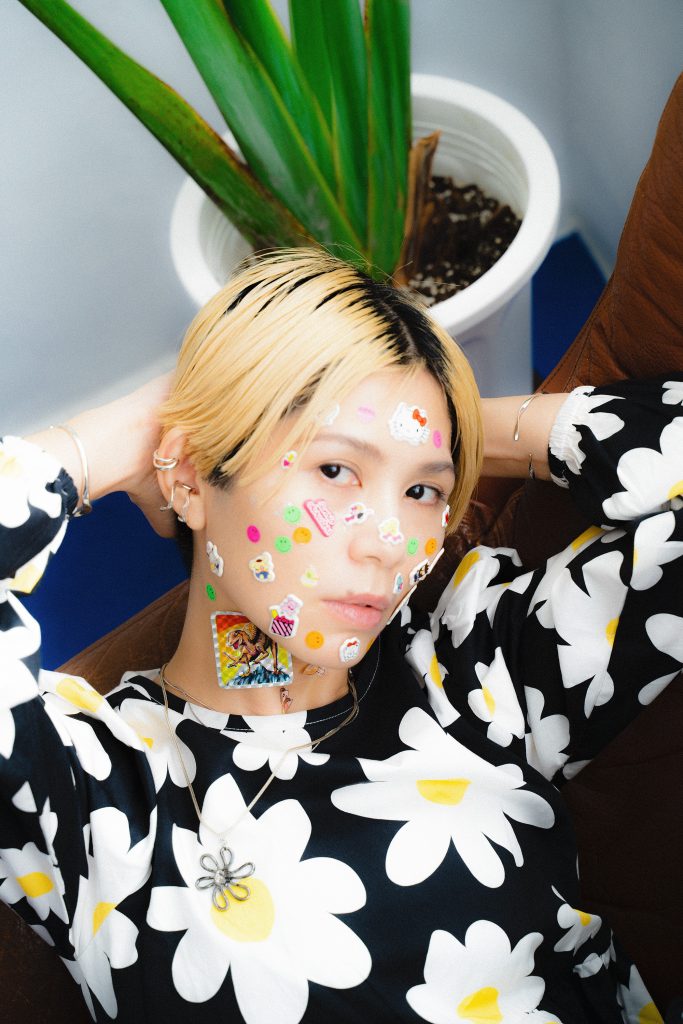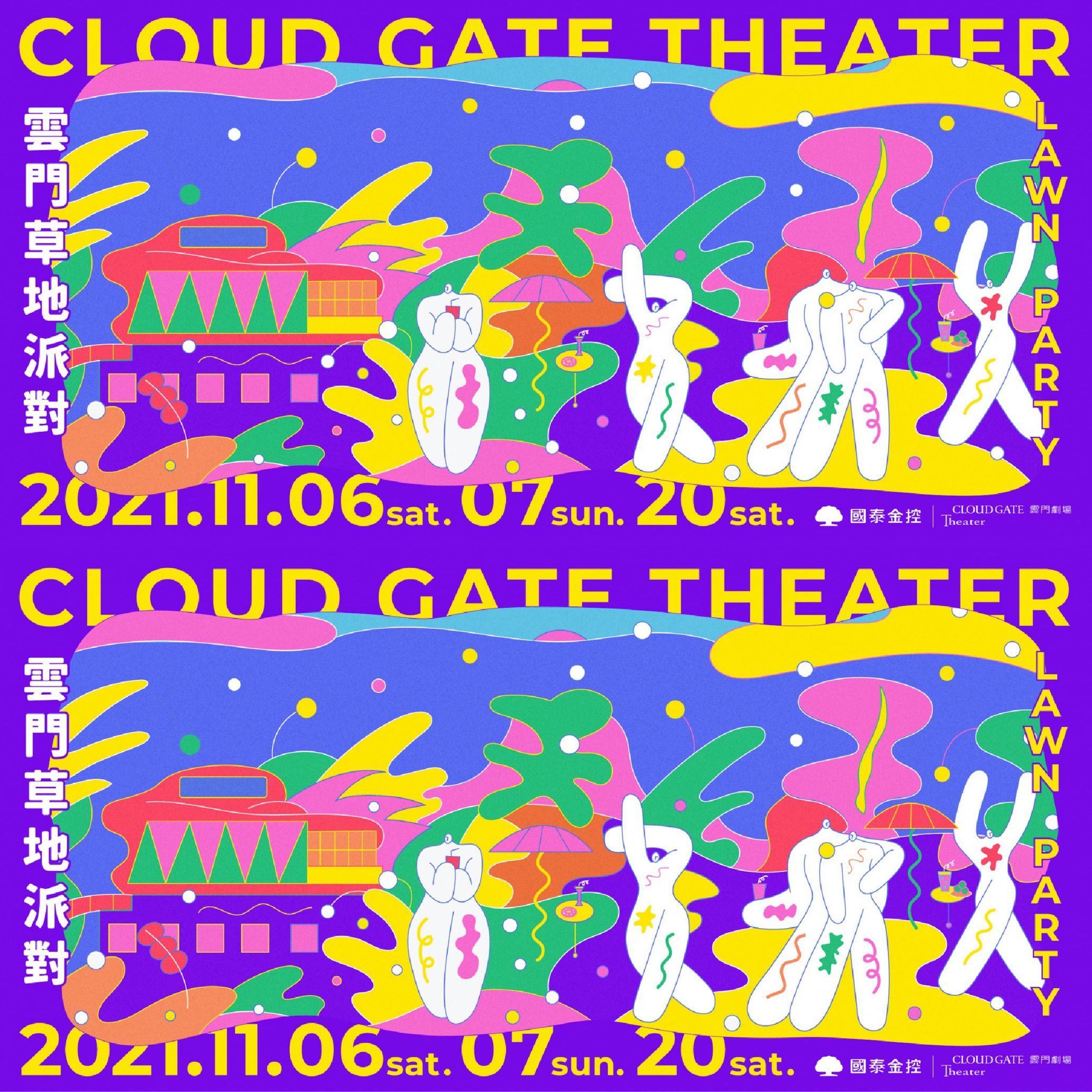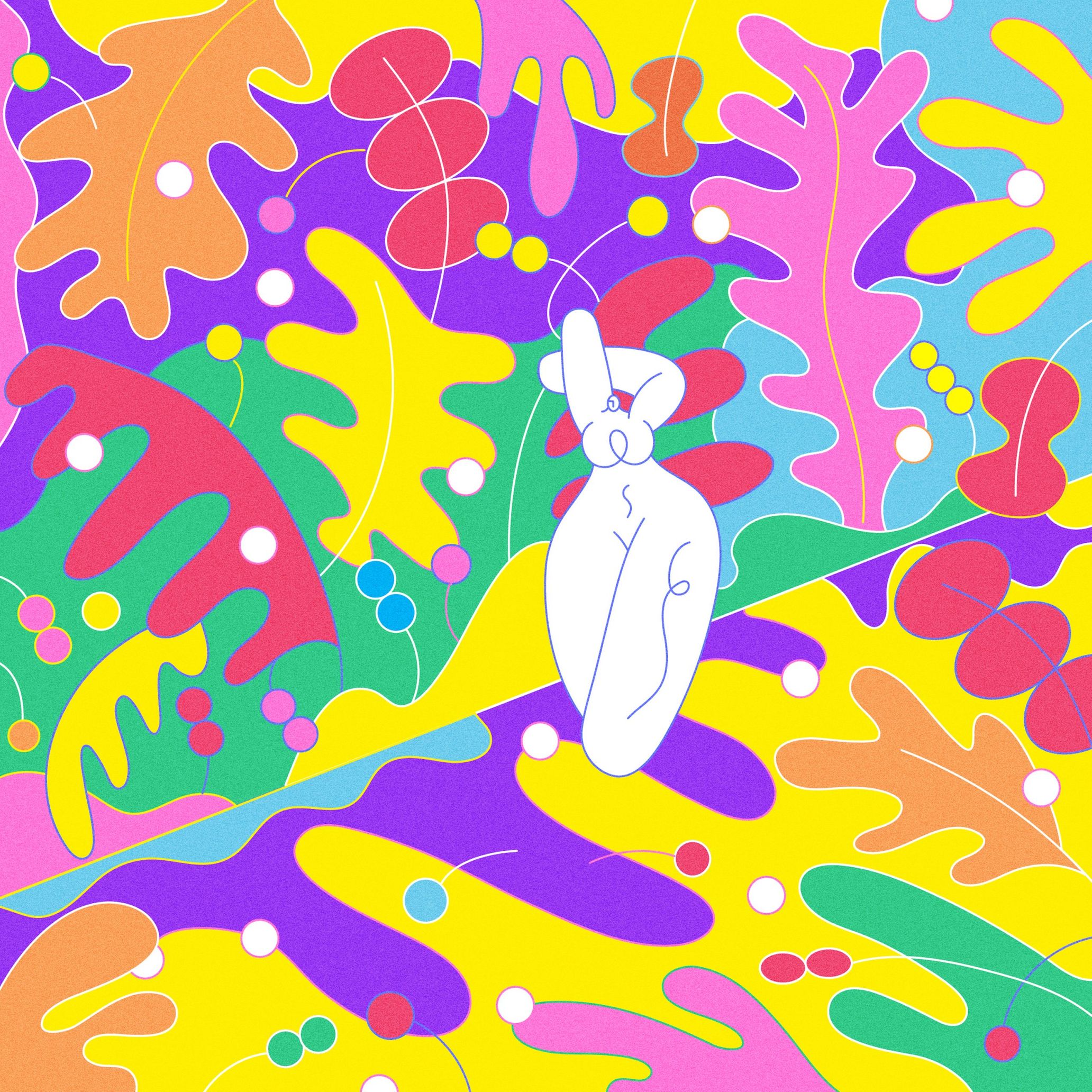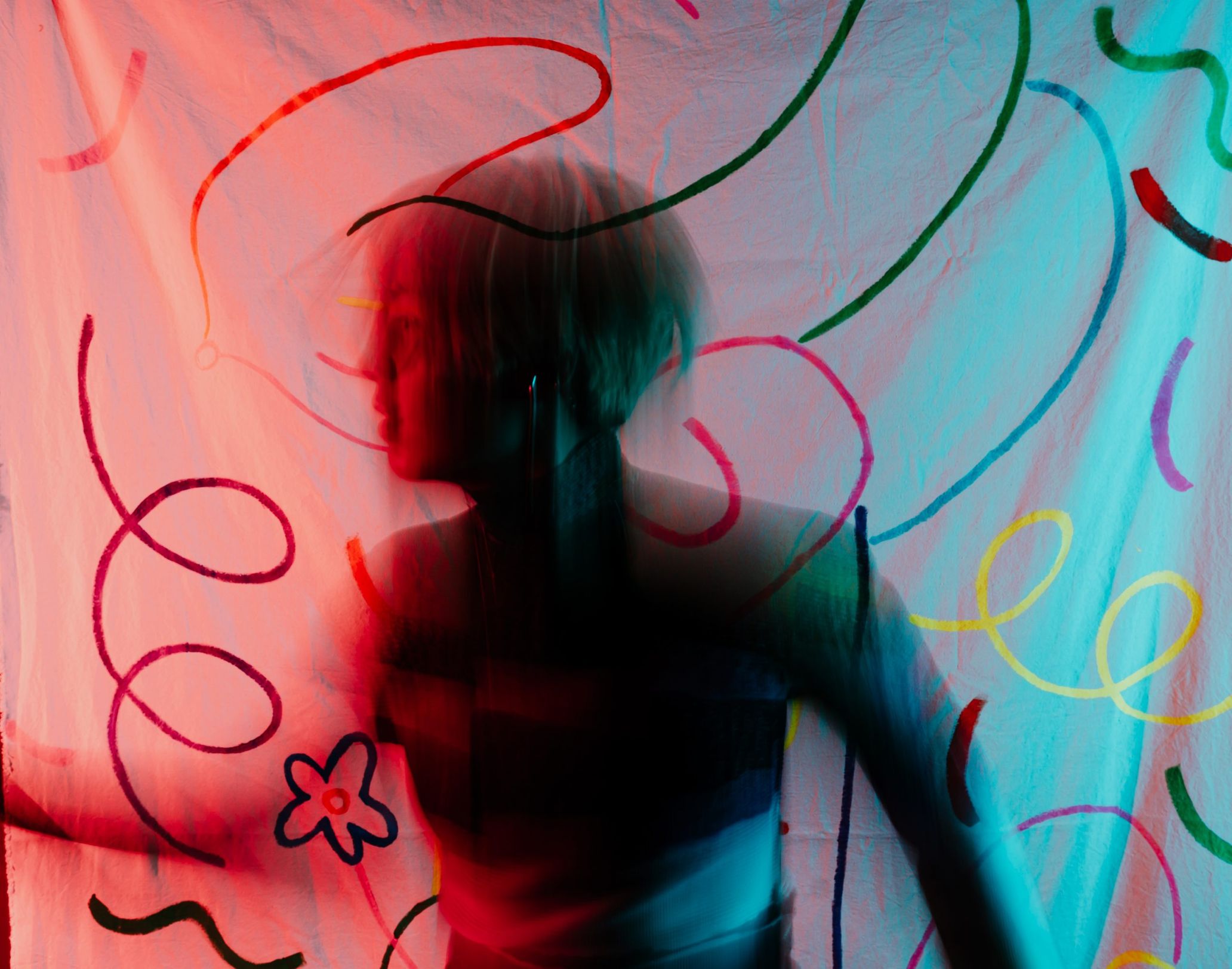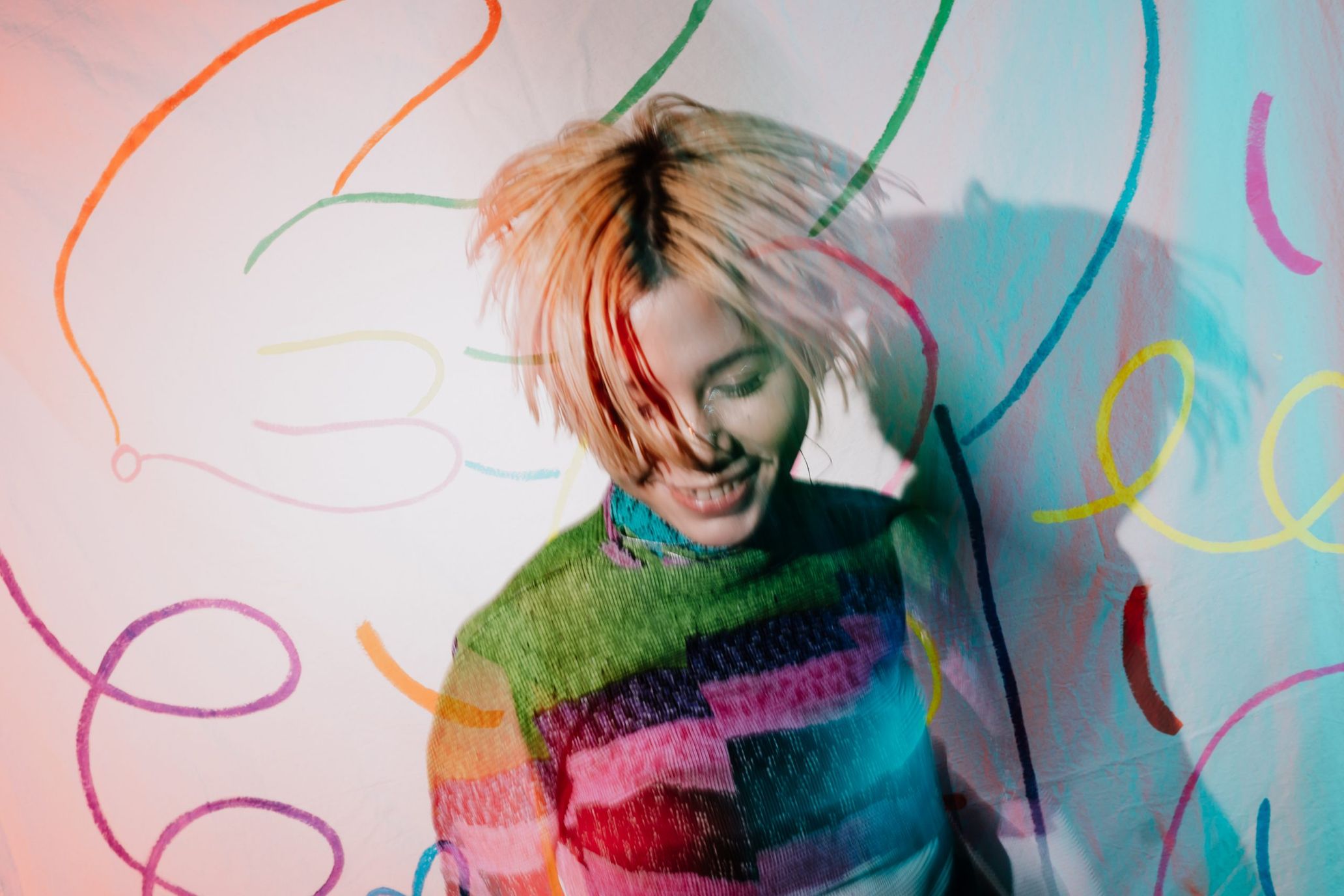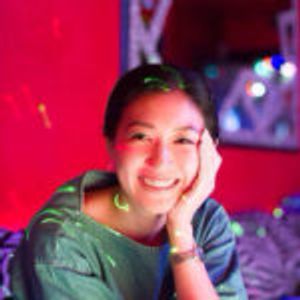Taiwan is brimming with energy for innovation. It is still fresh in people’s memory that the country gained global recognition for successfully containing Covid-19 in the initial stage of the pandemic. It was thanks to the efforts of Audrey Tan, the Minister of IT. Lately, Taiwan’s youth culture is developing rapidly, and we see extensive coverage by the Japanese media about stylish cafes, adorable goods, and the mouthwatering local food. Many people say that Taiwan is the most interesting place in Asia now. This is also evident in the art scene, literature, music, animation, and films. Conversely, there is a sense of crisis that Taiwan is not recognized as an independent country due to its complex history, including its colonization by Japan and other countries. Like many Asian countries, women in Taiwan still face obstacles to thrive in their environment. These factors have increased the appetite for counterculture among the youth.
Chou Yi is garnering attention as one of the leading artists in the cultural scene in Taiwan, where the collision of different ideas is leading to creative and artistic output. She chose her country’s tradition, language, and her daily hometown life in Xinzhuang, for her themes and inspirations. Her hometown is known as one of the rare places in Taiwan for preserving its traditional landscape. Choi has been actively attending book fairs in the U.S., Europe, and Asia to present her work. She deftly melds foreign influences into her work, which echoes the way Taiwan is developing its unique culture. Yusuke Nagaoka, an artist and Choi’s partner, served as the interpreter for the interview. He speaks about the dynamic youth culture in Taiwan. I was intrigued when he said, “It’s impossible to find the most interesting cultural scene in Taiwan if you only conduct your search in either Japanese or English.” What are Chou’s reflections these days?
“Because of the pandemic, the meaning of freedom has changed dramatically.”
ーーMost of your work has been described as “a world that moves between reality and fantasy.” How do you define reality and fantasy?
Chou Yi: I feel frustrated with my work and daily life. I have inner conflicts about the reality that I can’t escape. The flip side is that I have a world of fantasy within me, where I am allowed to do anything. It’s a place where I can execute what I want to do. The real world is complex and some things are impossible for me to deal with. The harder things are in reality—as if I am rebounding against it, the more radiant my fantasy is. The world that I express in my work is contradictory, yet complementary at the same time.
ーーWould you say that the world, which holds those two opposite values, expresses every aspect of life?
Chou: When I am depressed, I want to create work that makes me happy. This feeling becomes my motivation to create work. I don’t even need to control what I paint. My hand just starts to paint. When I upload my work on Instagram and receive comments from people saying that they felt energized seeing my work, it certainly has an uplifting effect on me. I hope that women can lead the life they want.
ーーFrom the beginning of your career to now, your method of expression changed several times. What were the circumstances that led to those changes?
Chou: It changed when I was influenced by the transformations in society and times around me. Along the way, the artists and clients I collaborate with, including my friends, also changed. While the number of followers on social networking sites has increased, different and diverse types of audiences following my work have now emerged.
In the early days of my activities, many of my friends and followers around me were from the counterculture and subculture crowds. They asserted their legitimacy and said, “It’s not worth your effort” to people with different ideas. They completely rejected any values that were different from their own. It was considered cool to be a rebel. Even today in Taiwan, there is a certain group of people who hate the world. They think that there is no future and are filled with pessimism. It creates a certain mood. Among people who thought that these values were cool, the decadent music of Japanese rock and grunge from the 90s became popular in Taiwan and turned into a big movement. At one point, I shared the same values with these people. In contrast, today I work with the government and corporations.
ーーI learned that freedom is the common theme of your work. The world has changed so much in the last couple of years, and we are under many restrictions. Has your definition of freedom changed because of that?
Chou: Freedom that I defined in the past was about my relationship to society. It meant escaping from the social pressures, where things need to be a certain way, and entrenched values. Just like Japan, Taiwan has strong traditional and conservative values. I wanted to emancipate myself from them.
We are still amid the pandemic, and thus, the meaning of freedom has changed for me. Since I could no longer go out freely to meet people or travel overseas, I started to pay attention to maintaining my mental stability. I meditate nowadays and carry a healing stone. I used to think about how to behave in society, but now my theme is spiritual freedom. My interpretation of freedom has expanded and it is reflected in my work. I used to draw a meticulous draft first and drew exactly on it to finalize my work. Nowadays, I don’t even do that and finish my work spontaneously, without any drafts.
ーーYour work was exhibited at art book fairs in Shanghai and the U.S. You also worked with various foreign publishers, including one in Mexico. What relationships were stimulating to you and what did you discover?
Chou: My first book fair outside of Taiwan was in Seattle. It was more of an alternative book fair called Short Run, which was held for one day. The book I sold there was called TOWN, which depicted the landscape of Xinzhuang, where I was born and raised, and my fantasy world. I had no idea how my work would be received in a foreign country. At the time, I was in a slump and was unsure about the direction of my work. I just had to believe in myself and finally managed to turn my work into a book.
Short Run is a local book fair, and most participants come from the West Coast, Seattle, Portland, and Vancouver. I saw a publisher of alternative comics from Chicago. There was hardly anyone from Asia. The first person who liked my work was a guy who was running his own booth. He seemed to have spread the word within the fair that there was an interesting artist with very unique works. After that, people kept coming to my booth, and sales were great. At the book fair, I talked with so many people that I forgot how much time had passed, and it was an inspiring experience. People from Seattle and Portland seemed to relate to my work in the sense that they were proud of the city they lived in. I didn’t expect any of this positive reaction, and it ultimately gave me confidence in my ideas and expression. Compared to Taipei, my small town of Xinzhuang is very traditional. It is certainly not cutting edge or cool. However, I learned that sticking to what I personally find thought-provoking and expressing it unabashedly is the best way. People continue to be very receptive and deeply relate to my methodology and works.
At the book fair in Shanghai, I didn’t have a language barrier, and I got to know the place by having face-to-face conversations. I met a Mexican publisher in Shanghai, and we ended up having a great dialogue. Afterwards, the publisher contacted me saying that they wanted to use my work at their book fair in Mexico. I had many experiences where my values changed drastically or were influenced by attending a book fair for a day or two. Therefore, I need to continue to have real-life interactions. We can expand our scope of activities online, but the actual in-person encounters are invaluable.
“Society is changing at a rapid pace, but I want to be myself no matter what the situation is.”
ーー As an increasing number of people are adapting to working remotely, they are choosing to live at places where they like or feel comfortable. You present your work abroad, but do you plan to live and work outside of Xinzhuang?
Chou: I would love to live abroad, but no matter where I go, my roots are in Xinzhuang, and that will never change. Xinzhuang is about an hour train ride from the center of Taipei. It’s not far away by distance, but the atmosphere is completely different. The city has strong ties to traditional Taiwanese culture. I joke with my friends that Xinzhuang is analogous to Williamsburg in Brooklyn as Taipei is to Manhattan. However, in terms of the cultural scene, Xinzhuang is still on its way. In my town, most young people are not interested in art, and there are only a few cafes and record stores. I would say, it’s more of a town in which there are quite a number of delinquent and disillusioned young people. Gigantic IKEA and UNIQLO stores are opening up in Xinzhuang, like the other suburbs in Japan. The city now has a strange mix of suburban and old-fashioned downtown atmospheres. Every time I come back from a foreign country, I learn that my city is so unique, intriguing, and strange. Even if you look all over Taiwan, you won’t find such a unique place.
ーーIn what way do you think the world is going to change?
Chou: I understand that with the increase in online communication, the value of something that is not tangible, such as NFT, (“non-fungible token” with a digital certificate that impedes reproduction and forgery), will increase. My friend invited me to try NFT. Even though I understood the appeal of selling and monetizing my work through it, I didn’t find it tempting enough to get into it. Two months ago, no one was talking about it. People have now begun to talk about how much their works were sold for. All they talk about is how to approach NFT. I feel threatened by people in a hurry to succeed, following where the money is going, and making fast money in the shortest possible time. Nothing good will come out of this if we don’t get away from only monetary values, and if we stop creating what we are passionate about. Society is changing rapidly, and unexpected things continue to occur. However, I want to be myself no matter what the situation may be. I am much more interested in real-life communications and paintings with clear brushstrokes. If I were to have an exhibition next, I would like to focus on oil paintings, watercolors, and pencil paintings and physically display them to others at a venue where I can have personal conversations with my guests.
Chou Yi
Chou is an artist and graphic designer based in Taiwan since 2010. Her work includes graphic design on human rights actions for Amnesty International, the world’s largest international NGO on human rights. Chou’s illustrations are used extensively for display and digital signage, including Lumine stores in Japan, and she collaborates with Beams Taiwan and Nike, among others. Her awareness as a woman is reflected in many of her works.
chouyi.co
Translation Fumiko M

